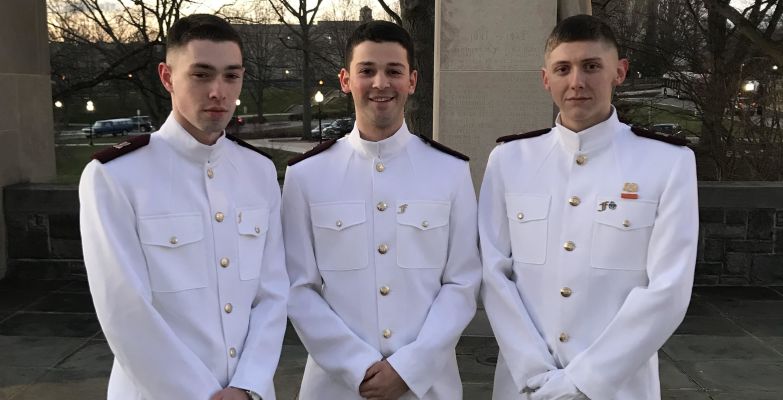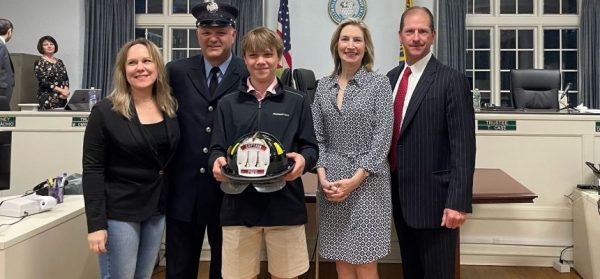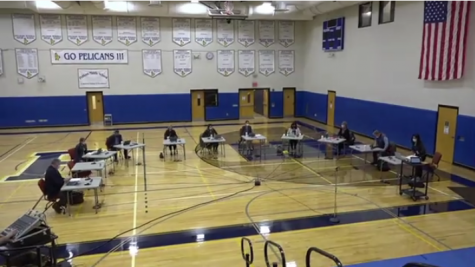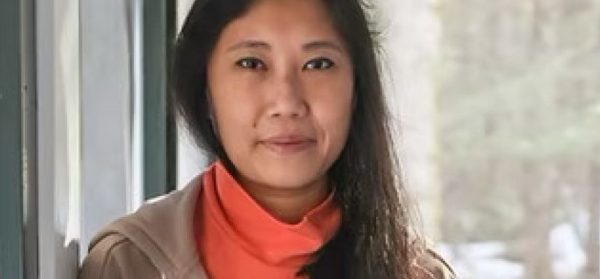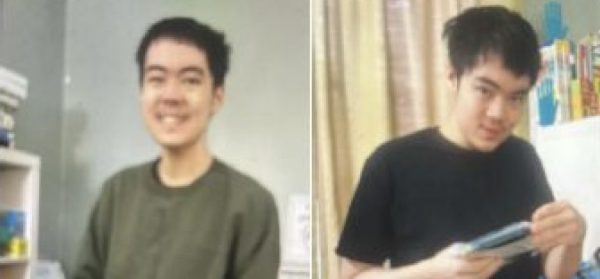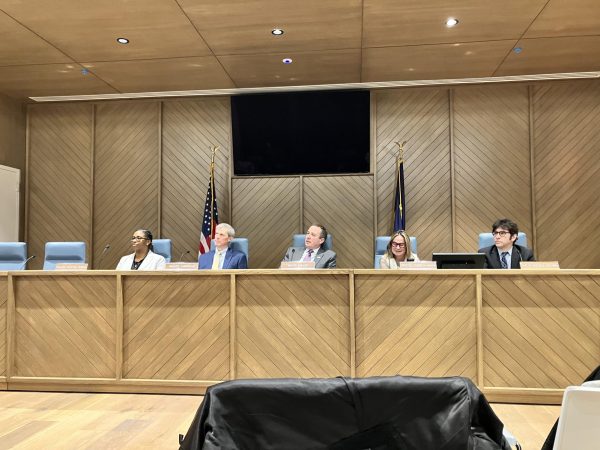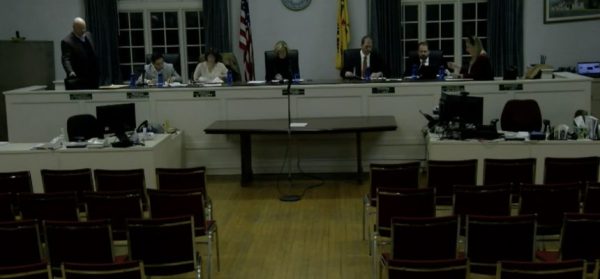Pelham college students return home, adjust to distance learning during pandemic
Students at all levels of education are struggling to adapt to the chaos that is the Covid-19 pandemic. PMHS alumni who were, until recently, unconcerned about exposure now find themselves back home and closer to the epicenter than they ever thought they’d be.
Henry Driesen, a recent graduate of Pelham, studies political science and is in the ROTC program at Virginia Polytechnic Institute and State University. He had intended to return to school after his spring break, which began on March 6.
“It wasn’t until that Monday,” he said, “I started hearing murmurs about it.”
Just two days later, the school officially announced that the rest of the semester would be taught online. This was quite sudden for Driesen, who had to have his roommate pick up his belongings that he had thought he was going to be able to retrieve from his dorm himself. The rest of the semester for Driesen means recorded lectures, Zoom office hours with his professors, and online finals. Although he said some lectures may be done through Zoom, a video conferencing platform, they would not be “in-person live broadcasting.” Since the initial decision to close for the semester, Virginia Tech has canceled their graduation. “They’re moving it online, whatever that would entail,” Driesen said.
His biggest concern now as a student is maintaining his own academic schedule outside of school, an issue that many current Pelham students are dealing with. “It definitely will be different from being there in person,” he said. “But you’ve just got to make the best of the situation.”
Driesen, whose parents moved out of Pelham after he graduated high school, had been living in New York City for the past year. His family is now staying on Martha’s Vineyard to avoid exposure to the virus. “We’re just kind of here indefinitely until things die down,” he said. “It just kind of sucks.”
Lily Burns has remained in Pelham for the duration of her college studies, and has witnessed local efforts to cope with Covid-19. Also a freshman, Burns is studying marketing with a minor in environmental sustainability at Baruch College in the city. Baruch has been online for almost two weeks now, although Burns said she had been hearing rumors of closure about two to three weeks prior.
In a public CUNY school like Baruch, Burns said, “if one person gets it, then everyone is affected by it, and we all have to reap the consequences.” Even without the virus at her own school, whispers of cases at other CUNY schools had students already thinking about closure. “There were maybe two professors that would bring it up in class and say they were prepared if that would happen,” Burns said.
Burns wasn’t too concerned, either, until cases started showing up closer to home. “I remember around the time that man in New Rochelle was diagnosed, that’s when I started to get worried about it,” she said. She takes the same train line into the city, and at the time was even considering not going into school at all to avoid the commute.
She didn’t end up having to make that decision for herself, though. Burns said that before she even received an email from CUNY, she found out that her school would be taking a four-day recess through a tweet from Governor Cuomo. She has since resumed her classes online, the format for which seems to be slightly less uniform than she would have hoped. Even when classes were in person, Burns said, “Every professor decides to use a different program to get their work across.” Now that the rest of the semester is online, teachers have begun sending out video lectures and using Zoom to video chat with students. Tests, she said, will be administered online, although “a lot of professors are worried about cheating.”
As far as communication goes, Burns said the Baruch and the CUNY system have been consistent in keeping students updated at least daily. Much like Driesen, Burns is worried about the distraction and lack of structure that she will have to deal with going forward. Although she had been living at home while she was going to school, she said that it was going to be much different having to complete all of her work off campus. Even then, she said, the social isolation is much worse than the academic obstacles that she will have to overcome in the next few weeks.
A current freshman, Kaitlyn Rubbo is majoring in communications at Loyola University in Maryland. Rubbo had barely returned from spring break when she was sent home again. “The first day of classes, professors started talking about what would happen if we were to go online,” she said. “You could not take a step on campus without anybody asking about how many cases there were or something about the coronavirus.”
“The first few days was kind of crazy because no one really knew what was happening,” she said. Initially, the school had planned to have students return on April 1st after a short closure. That deadline was soon extended past Easter, and eventually the idea of return dissolved altogether.
Rubbo began her online education last week, with professors holding Zoom sessions at various times during the week and using PowerPoint and other platforms to get their lectures to the students. Since the closure, she has experienced a noticeable shift in her workload as teachers try to compensate for lost time. “We have a lot more work because a lot of my classes are discussion based,” she said, “so now they have a lot more discussion boards and homeworks, and assignments and activities for us to do.”
Overall, Rubbo said that both her school and her professors have been communicative and understanding about these unprecedented circumstances. It has been hard, she admits, having to deal with the impact of the pandemic in just the second semester of her freshman year.
Melissa Altschiller, a sophomore studying public health and political science at George Washington University, wasn’t even in the country when students were first being sent home from school. “I picked up my life and moved halfway across the world for what I thought would be six months,” she said. Altschiller had been studying at the University of Amsterdam through a study abroad program, and had planned to stay there through the end of May. She received a rude awakening when an email from the university informed her that she needed to return home within twenty-four hours.
Like many others, she hadn’t been too concerned about Covid-19 affecting her own life until that point. She only first started to notice the impacts of the virus, she said, when Italy’s study abroad programs began sending their students home: “That’s when we kind of realized, this is getting bad.”
Despite announcements from both GW and the study abroad program telling Altschiller that she was required to return to Pelham as soon as possible, she noted that “neither program helped” when it came to actually getting home. She was informed after the process that she could request to be reimbursed for her flight, but at the time had no idea whether her school had a plan for her. “I didn’t know if I was going to be able to get home,” she said. To her, coming back to Pelham didn’t necessarily seem like the safest option; at least in Amsterdam, she wasn’t living blocks away from a containment zone.
For the remainder of the semester, Altschiller will be taking online classes with the rest of University of Amsterdam’s students. She is technically not a student at GW for her semester, so she’s depending on the University’s resources and professors to help her adapt from the US. The school is closed until April 6, she said, but she doesn’t see it reopening anytime soon. Similar to colleges in the US, her professors are using Blackboard and Canvas to communicate with their students. Altschiller said that this seems to be a “poor learning system, but for the present moment it’s the easiest way to do it.”
According to Altschiller, even when it came to their US students there was no effort by GW to prepare students for an extended closure. Students leaving for spring break were told not to worry; many left their belongings in D.C., only to be told once they had left that their semester was cancelled. “GW really mishandled the situation,” Altschiller said, “but it’s so unprecedented, no school has handled this well. And I know everyone else is going through it too. Everyone is thinking, ‘Why me?’ which…sucks.”
Of all the Pelham graduates, Samantha Tsang had the earliest encounter with the effects of the pandemic. Tsang is a member of what will be the first graduating class of a four-year program at Duke Kunshan University, a sister school of Duke University just outside of Shanghai. She is a sophomore majoring in global China studies on a political science track. Tsang and her classmates had been hearing about the virus long before students in the US were worried about how it might affect them: “we like to joke that my school set the trend of closing down for coronavirus,” she said.
Duke Kunshan announced its closure on January 25, marking the start of this year’s Chinese New Year celebration, which Tsang notes is the largest annual migration of people in the world. Students would typically use this time to travel home or abroad while they have time off from school. She had been able to fly to Hong Kong to visit family before the announcement was made, and on February 1 returned to New York. The closure, she said, “was done out of an abundance of caution. There were no confirmed cases on my campus, but the issue was becoming far more serious very quickly in the surrounding area.” Although Wuhan, where the virus originated, is far from the school (roughly a five-hour high speed train ride), Tsang said that it was clear that the virus “became a very pressing issue over a matter of days.”
Unlike Altschiller’s experience, Tsang felt that her school kept her very well informed of the measures they were taking to ensure that students were safe, shutting down very early on and reimbursing students for their flights. “Students reached out to administrators to ask about any sort of preventative measures that were being taken, just in case the virus would affect our studies, and within twenty-four hours the administrators reached out,” she said. They were told that, much like Pelham’s precautions, there were more frequent cleanings on campus, and masks were even being handed out to students at the school. “At the time it may have been deemed a little bit extreme,” she said, “but I definitely think it was necessary.”
For Tsang, online classes began on February 24 through Zoom and other additional assignments. Most of her professors have placed a large emphasis on writing since the shutdown and tests and quizzes are considered to be open-book. She notes that her professors “have done a good job of trying to maintain the rigor of in-person learning through this online medium.” Her new schedule is difficult, she said, “because there aren’t distinct boundaries between work time.” Although she appreciates the flexibility that online education provides, she said that it certainly “takes away from some of the aspects of learning that make college important.”
The general consensus among college students is clear: this whole situation “sucks.” Even with everything we thought to be dependable seemingly falling apart around us, Tsang reminds us that not all is lost, saying, “I think the good thing that has come out of this is I can feel a real sense of community in my school, even though we are in several time zones across the world. Seeing people come together to support each other, even though we are so far apart, I still feel connected.”
Sophia Leung is a freshman at the University of Pennsylvania with an undecided major in the College of Arts and Sciences. In addition to contributing to...



